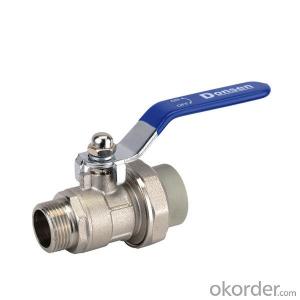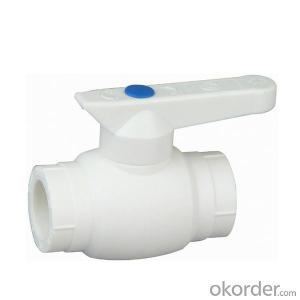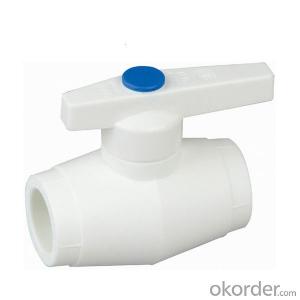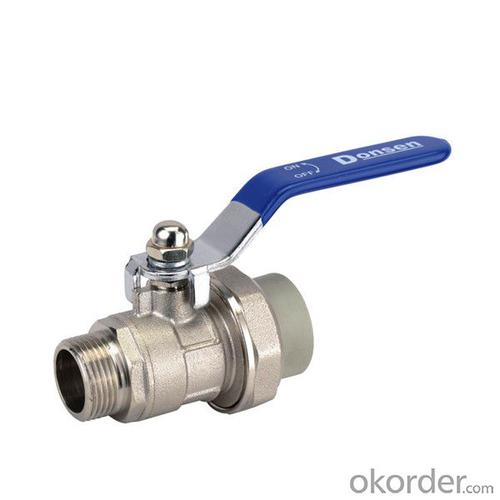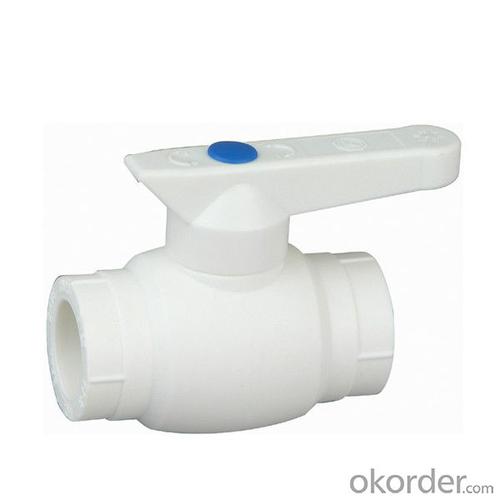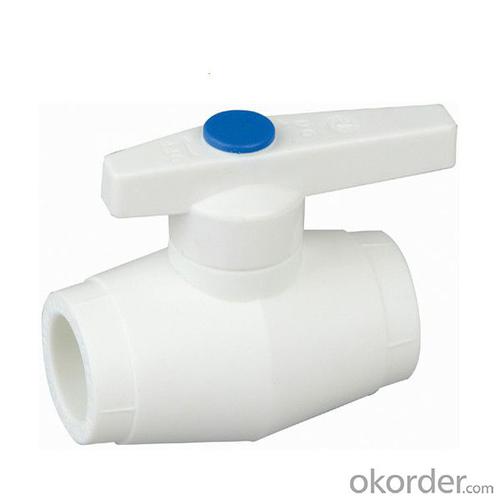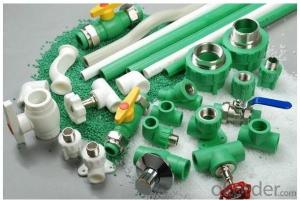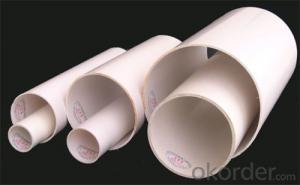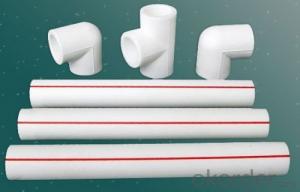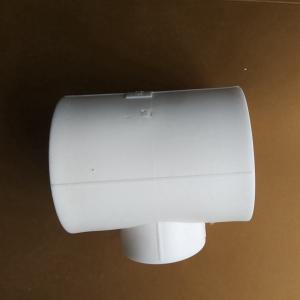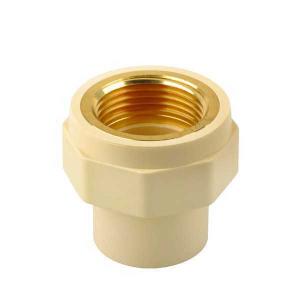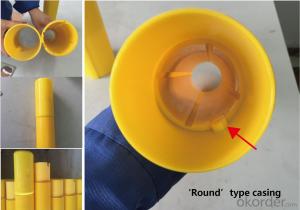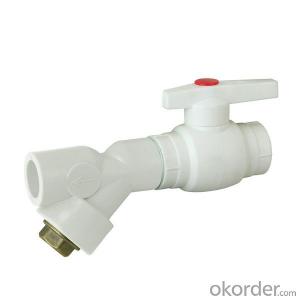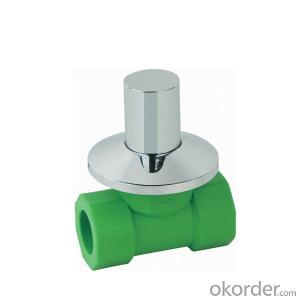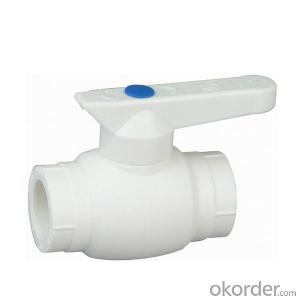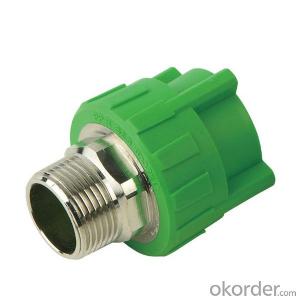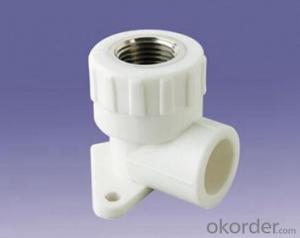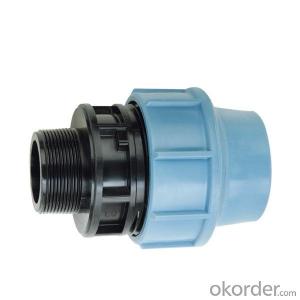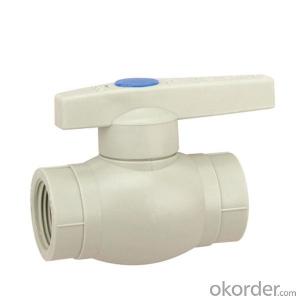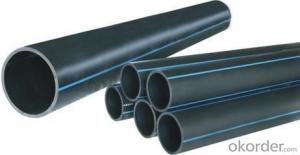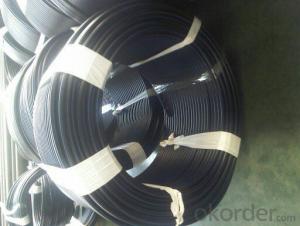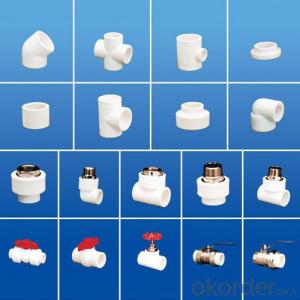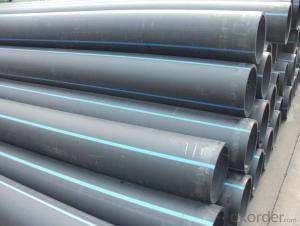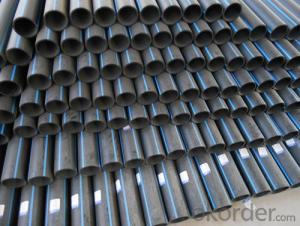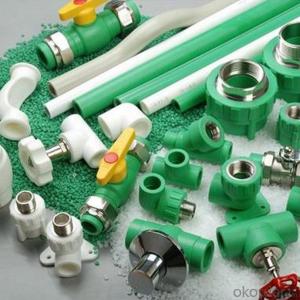Copper Pipe Into Plastic Fitting - New PPR Pipes for Buildings with Hot Melt Copper Core Ball Valve
- Loading Port:
- Tianjin
- Payment Terms:
- TT OR LC
- Min Order Qty:
- 1000 pc
- Supply Capability:
- 100000 pc/month
OKorder Service Pledge
OKorder Financial Service
You Might Also Like
Product Description
Distribution for cool and hot water Duct for drinkable water system Pipes for kinds of high-temperature and low-temperature heating system Pipes for heating and cooling settings in solar energy system Connecting pipe for air conditioners
Quick Details
Material: Plastic
Technics: Injection
Type: Valve
Place of Origin: Zhejiang, China (Mainland)
Model Number: DSW358-363
Connection: Welding
Shape: Equal
Head Code: Round
Standard: ISO,DIN,EN,MSS,API,BS,ANSI
Certification: ISO9001,CE
Specifications
Standard: DIN8077/8078
Material: R200P from Korea
Packaging & Delivery
1. Large carton:515x400x220 Cubage:0.04532 M3
Small carton:390x255x250 Cubage:0.0248 M3
2. PE poly bag+ cartonDelivery Detail: 15 days/ 20" container; 25 days/ 40HQ
Our Advantages
1) Healthy, bacteriological neutral, conforming to drinking water standards
2) Resistant to high temperatures, good impact strength
3) Convenient and reliable installation, low construction expenses
4) Excellent heat-insulation property from minimum thermal conductivity
5) Lightweight, convenient to transport and handle, good for labor-saving
6) Smooth inner walls reduce pressure loss and increase flow speed
7) Sound insulation (reduced by 40% compared to galvanized steel pipes)
Product Size
Normal Sizes for CNBM PPR Pipe | |||||
Outside Diameter(mm) | Wall Thickness(mm) | Package(m/bale) | |||
S5 PN1.25MPa | S4 PN1.6MPa | S3.2 PN2.0MPa | S2.5 PN2.5MPa | ||
20 | 2 | 2.3 | 2.8 | 3.4 | 120 |
25 | 2.3 | 2.8 | 3.5 | 4.2 | 120 |
32 | 2.9 | 3.6 | 4.4 | 5.4 | 80 |
40 | 3.7 | 4.5 | 5.5 | 6.7 | 60 |
50 | 4.6 | 5.6 | 6.9 | 8.3 | 40 |
63 | 5.8 | 7.1 | 8.6 | 10.5 | 24 |
75 | 6.8 | 8.4 | 10.1 | 12.5 | 16 |
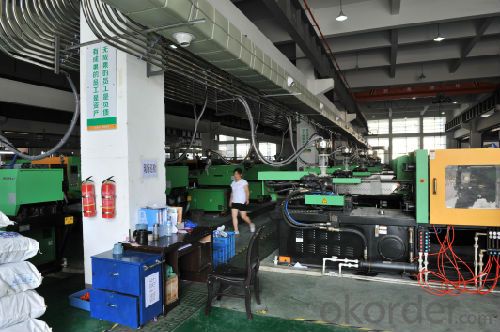
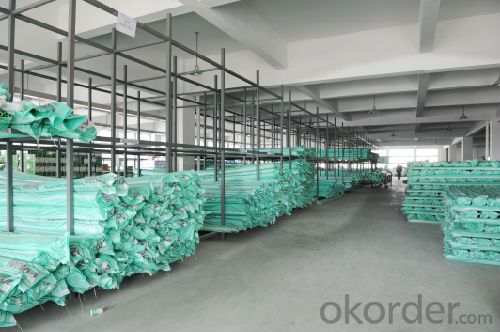
FAQ
Q1:How Can I Get A Sample?
A1:You can get samples by communicate with our export sales.
Q2:How Long Is Delivery?
A2:Delivery time will be30-45days according to order quantity.
Q3:What Is The MOQ?
A3:MOQ depends on different items.
Q4:What Is Our Normal Payments Terms?
A4:Our normal payment terms now is: T/T, L/C or western union,paypal
- Q: Are plastic pipe fittings suitable for use in power plants?
- Yes, plastic pipe fittings can be suitable for use in power plants depending on the specific application and requirements. However, it is important to consider factors such as temperature, pressure, chemical compatibility, and fire resistance to ensure that the chosen plastic pipe fittings meet the necessary standards and regulations for power plant operations.
- Q: How do you connect plastic pipe fittings to pipes?
- To connect plastic pipe fittings to pipes, you typically follow a few simple steps. First, ensure that both the fittings and pipes are clean and free from any debris. Then, apply a primer to the outside of the pipe and the inside of the fitting to help with adhesion. Next, apply a generous amount of solvent cement to both the pipe and fitting, ensuring complete coverage. Finally, quickly and firmly push the pipe into the fitting, giving it a slight twist to ensure a proper seal. Allow sufficient time for the cement to dry and create a secure bond before using or applying pressure to the system.
- Q: Are plastic pipe fittings resistant to high humidity environments?
- Yes, plastic pipe fittings are generally resistant to high humidity environments.
- Q: PE how about the installation of plastic pipes?
- Measures should be taken to protect or adjust the connection process under cold weather (--5 degrees below) and strong wind conditions
- Q: Can plastic pipe fittings be used for irrigation in agriculture?
- Yes, plastic pipe fittings can be used for irrigation in agriculture. Plastic fittings are lightweight, durable, and resistant to corrosion, making them suitable for various irrigation systems. They are also cost-effective and easy to install, making them a popular choice for agricultural irrigation applications.
- Q: Are plastic pipe fittings resistant to water hammer?
- Yes, plastic pipe fittings are generally resistant to water hammer.
- Q: How do you remove plastic pipe fittings?
- To remove plastic pipe fittings, start by turning off the water supply and relieving any remaining pressure in the pipes. Then, use a wrench or pliers to loosen the fittings by turning them counterclockwise. If the fittings are stubborn, applying heat with a hairdryer can make the plastic more pliable and easier to remove. Alternatively, you can cut the pipe just above the fitting and use a new fitting for replacement.
- Q: Are plastic pipe fittings suitable for hydroponic systems?
- Yes, plastic pipe fittings are suitable for hydroponic systems. They are commonly used due to their durability, resistance to corrosion, and affordability. Additionally, plastic pipe fittings provide easy installation and flexibility in designing the hydroponic system.
- Q: Can plastic pipe fittings be used for process water systems?
- Yes, plastic pipe fittings can be used for process water systems. Plastic fittings are commonly used in plumbing applications and can provide a reliable and cost-effective solution for process water systems. However, it is important to ensure that the specific type and material of plastic used is suitable for the intended application and meets any relevant industry standards or regulations.
- Q: Are plastic pipe fittings resistant to thermal expansion?
- Yes, plastic pipe fittings are generally resistant to thermal expansion.
Send your message to us
Copper Pipe Into Plastic Fitting - New PPR Pipes for Buildings with Hot Melt Copper Core Ball Valve
- Loading Port:
- Tianjin
- Payment Terms:
- TT OR LC
- Min Order Qty:
- 1000 pc
- Supply Capability:
- 100000 pc/month
OKorder Service Pledge
OKorder Financial Service
Similar products
Hot products
Hot Searches
Related keywords
